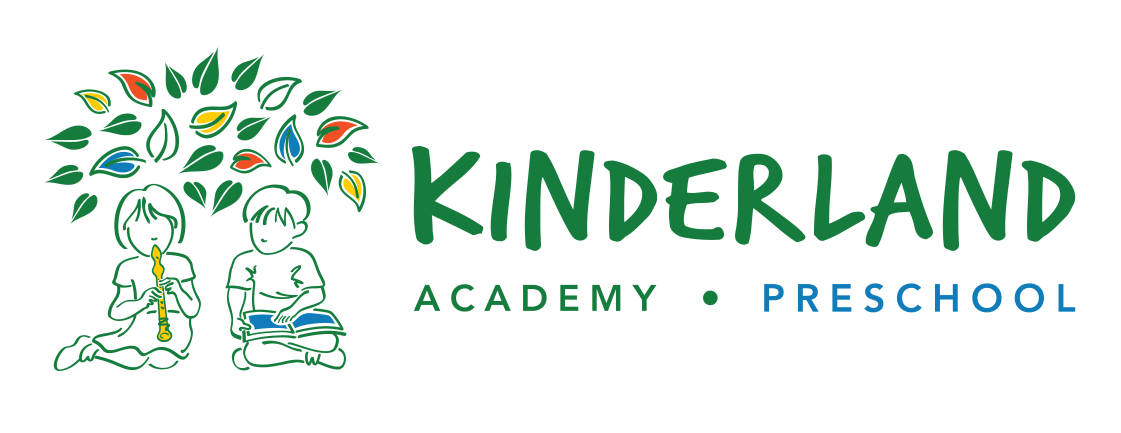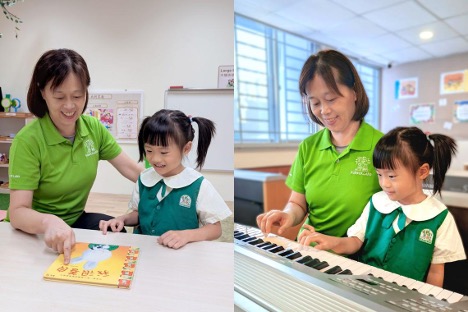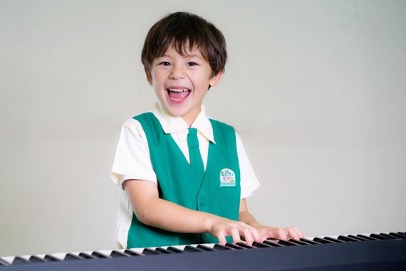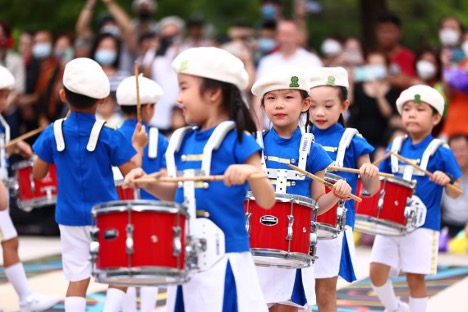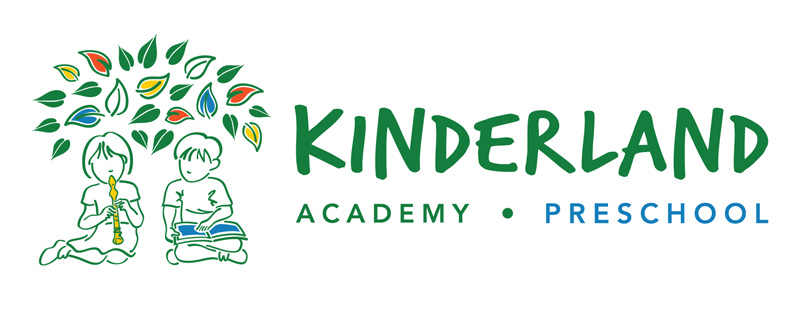Imagine a preschool where laughter blends seamlessly with nursery rhymes and rhythmic beats. At Kinderland Academy & Preschool, music is central to every child’s learning experience. The Kinderland music-infused curriculum makes education effective, joyful, and deeply engaging.

The Magic of Music on Growing Minds
Music is more than entertainment—it nurtures cognitive, emotional, and social development.
Early exposure to music stimulates brain growth and builds critical life skills, particularly in the first five years of a child’s life. Music engages three key brain areas: language, auditory processing, and rhythmic motor control.
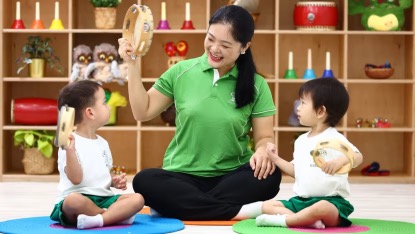
Music promotes cognitive development and overall well-being in children, particularly during the critical first five years of life.
Building Lifelong Benefits
In conclusion, music plays a vital role in fostering children’s overall development. Through ensemble playing, children learn patience, discipline, and the importance of collaboration. This process builds teamwork skills and fosters a sense of shared accomplishment. Harmonizing with peers enhances interpersonal relationships and boosts self-confidence. Music also nurtures resilience, creativity, and emotional expression. It empowers children to grow into well-rounded, expressive individuals ready to navigate the world with assurance and adaptability.
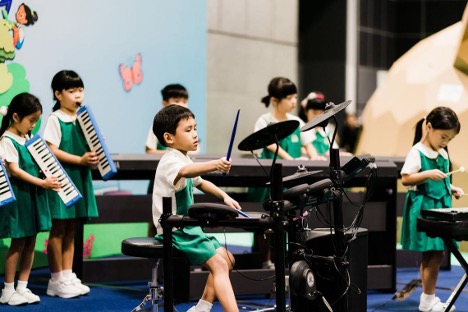
Other than the marching band, Kinderland’s stage ensemble is another avenue for children to participate in public performances.
Transformative Testimonials
Mdm Yeo Pei Qin, a mother of three girls, shares her experience with Kinderland Preschool @ Marine Parade. She appreciates how the music-infused curriculum helps all her children enjoy learning. Her eldest daughter, Gillian, a Kinderland alumni, began piano lessons easily due to Kinderland’s music foundation. Her second child, Janalle in Kindergarten One, displayed easy acquisition of science concepts through songs like the water cycle song. Raelynn, her youngest in Pre-Nursery Two, picks up simple tunes on the keyboard through her sisters with the early exposure to music in preschool. Mdm Yeo values Kinderland’s mix of academics and fun and has testified how Kinderland’s music-infused curriculum has enriched her children’s learning experiences.

Ms Yeo Peiqin and her family have embraced Kinderland’s music-infused curriculum for its holistic benefits.PHOTO: COURTESY OF MS YEO PEIQIN
Another parent, Ms. Khaw Chun Ting, chose Kinderland for her two young sons, drawing on her own cherished experience as an alumna. “I couldn’t be happier with my decision,” she shares. “The environment and curriculum strike the perfect balance between learning and fun. My boys absolutely love the music programme—they are always singing, dancing, and even picking up Mandarin through songs. It is wonderful to see them so engaged and enjoying their education in such a meaningful way.”
Why Kinderland’s Music-Infused Curriculum Stands Out
Kinderland’s uniquely music-rich environment fosters emotional connection and confidence. Children also develop essential skills like communication, creativity, and collaboration. Dr. Carol Loy, Senior Director of Curriculum & Professional Development, highlights music’s role in engaging the brain and building teamwork.
Started out as Yamaha Kindergarten, Kinderland’s music-infused curriculum has over 45 years of research and innovation, working with established overseas institutions in upkeeping the highest quality of education and custodian care. The homegrown brand is trusted by parents across eight countries in Asia Pacific –Singapore, Cambodia, China, Bangladesh, Indonesia, Malaysia, Vietnam and Australia.
Give your child the best start at Kinderland, where learning and music harmonize for an exciting future. Schedule a tour today to see what Kinderland Academy & Preschools have to offer!
Learn more about Kinderland at www.Kinderland.com.sg
We are mentioned on:
10 January 2025, CNA – Learning in harmony: How early exposure to music sets children up for academic success
20 January 2025, 联合早报 – 让幼儿全面发展:不同凡响的双语音乐启蒙教育
20 January 2025, Straits Times – From quicker learning to sharper thinking: How rhythm and song nurture your child’s potential
References
Sacks, O. (2006). The Power of Music. Brain, [online] 129(10), pp.2528–2532.
GAVEESH. (2014). Role of music in child development: A comprehensive review. Naad Nartan Journal of Dance & Music, 1(1), 162–166.
Ruksenas, J. (2014). THE BENEFITS OF MUSIC CLASSES FOR PRESCHOOLERS: THE ABC OF DO RE MI. Griffith.
